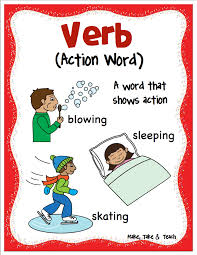There’s been some fascinating ding-dongs… I mean learned exchanges… about the teaching of grammar on Twitter lately. As an English teacher who wasn’t taught much explicit grammar terminology (or much else for that matter) at secondary school, I’d always dipped my toe tentatively into the murky waters of grammar teaching. Sure I could differentiate between an abstract and concrete noun, and spot the odd adverb that didn’t end in -ly, but would naturally shy away from the more obscure nomenclature (third person plural past indicative anyone?). My pupils had always done very well, and they’d bagged plenty of A*s along the way, so why worry too much about the old-fashioned stuff?
Moving to a school that teaches A Level English Language and has an abundance of expertise in this area quickly changed (or would you prefer changed quickly? No, thought not) this attitude. Not only did I feel the need to up my game but I also began to enjoy conversations in the staff room about the delights of grammar (we’re a lively bunch when it comes to chat). My interest was initially that of a bystander watching an emergency tracheotomy in the street: bloody fascinating but I wouldn’t want to be thrusting the sharpened Bic. But I started to incorporate more complex grammatical terminology in my teaching and guess what – I became hooked. And so did most of my pupils.
I still need to check plenty of stuff with my expert colleagues but using more explicit grammar terminology has improved my teaching practice no end. Here’s an example of how using A Level Language key terms has improved the analysis of my Year 11 GCSE group:
What is a verb?
The poster below sums it up perfectly, doesn’t it? Doesn’t it? Well, no. Pupils will cheerfully tell you that a verb is an ‘action’ word or failing that a ‘doing’ word. I’m sure the primary school teachers of today don’t oversimplify in this way any longer (the ones I’ve met recently are all steroid-enhanced grammar Schwarzeneggers), yet there’s a generation of kids who see verbs in these terms.
So a decent GCSE pupil might write about how ‘the verb ‘lighted’ suggests Crooks’ enjoyment at making Lennie suffer because ‘lighted’ means to glow. And that’s right, isn’t it? Because it’s an action: it’s glowing
All English teachers soon come to recognise however that there are plenty of pesky verbs that refuse to be pigeonholed by mere action. This is where confusion takes hold of your average devotee of ‘doing’. If we take the sentence ‘David is happy’ and ask “what’s the verb”, we will get the incorrect answer ‘happy’ (adjective) nine times out of ten, because being ‘happy’ is sort of an action, they reckon. If we teach verb processes, as I have done with my KS4 groups this week, then we invariably get the roguish ‘is’ as the correct response.
What are verb processes?
It’s important to distinguish between verbs that describe actions and events (material processes such as hit, push, eat and remove), verbs that describe a state of being (relational processes such as be, appear and seem) and verbs that describe states of thinking and feeling (mental processes such as think, speak, love and believe).
When faced with a quote from A Christmas Carol such as ‘the shortest streets were choked up with a dingy mist’ a pupil well-versed in verb processes might write about how ‘the use of the material process of the verb ‘choked’ implies a suppressive atmossphere, as the action of ‘choking’ indicates a restrictive environment.
A further distinction – arguably even more useful for the purposes of literary analysis – is the classification of dynamic and stative verb processes. Dynamic verb processes, as the name suggests, highlight a change in state over time (e.g. paint, remove, eat), whereas stative verb processes remain constant (hold, believe, love – interesting that ‘love’ remains constant from a grammatical point of view – if only it were so).
My Year 11s particularly liked the option of analysing how a verb suggests a change of circumstances. We’re doing the play DNA and my group came out with some highly sophisticated interpretations, inspired by the verb processes. For example, there’s an especially nasty little quote by a nasty little psychopathic character called Cathy who says ‘I threatened to gouge one of his eyes out’. After discussing the choice of the material verb ‘gouge’ – as opposed to the less sinister ‘pull’ – we looked at this as a dynamic process. One pupil wrote ‘the use of the dynamic verb process ‘gouge’ amplifies the sense of permanence of the ‘threatened’ assault. Once an eye is ‘gouged’ there is no propsect of a reversal; it stays out. Pretty impressive stuff I think you’ll agree, guaranteed to scare a few examiners into reaching for the grammar book or, more likely, the triple tick.
Next up: how to analyse the use of gerunds in a meaningful way. I’m not joking…


